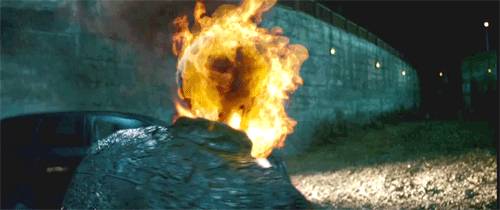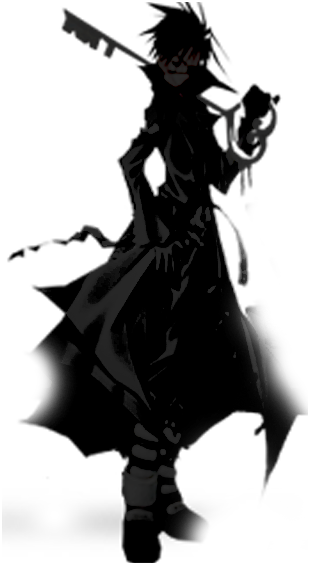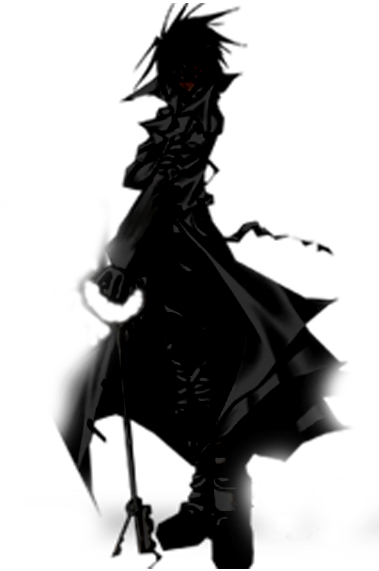We didn't know it at the time, but Resident Evil 4 was the beginning of the end. Though in many ways the series' best game, it also signaled the start of Resident Evil's transformation from survival-horror into something far scarier: forgettable, derivative action. By contrast, Resident Evil 7: Biohazard has been heralded as a return to form--a classic, uncompromising frightfest. And indeed, it is. In place of blockbuster pandering, the game delivers intimate horror with a tightly focused scope and all the trappings you'd expect from a survival game. No superfluous skill trees or meaningless fetch quests, just the stomach-churning tension of guiding a relatively helpless character out of a waking nightmare.
You do gradually gather weapons as you progress, but you could never mistake this for an action game. Every time you start to feel powerful enough to kick some ass, the game finds a way to pull the rug out from under you. I'm going to do my best to avoid spoilers, so let's just say it respects series traditions and that there's a lot more to RE7 than what you've already seen. And while the setting and characters have no obvious connections to any previous Resident Evil game, the series' DNA can be felt in everything from the puzzles and keys to the subtle psychological tricks used to cultivate dread.
But RE7 clearly takes cues from modern horror games as well, most notably by opting for a first-person perspective. Fans of games like Outlast may recognize a lot of structural similarities in large portions of the campaign, which--outside of some optional backtracking to collect items--follows a linear and highly scripted series of events. Annoyingly, that sometimes means wasting ammo on enemies who aren't scheduled to die until later fights, but at least those moments reinforce the tense, oppressive atmosphere that persists from start to finish. The results aren't always explicitly terrifying, but I was pretty damn stressed out for the duration.
The experience starts to drag a bit by the end, though, as you end up performing similar tasks throughout the entire game. The campaign could have benefited from a slightly higher density of unique, memorable moments. But make no mistake: there are memorable moments, and when they hit, they hit hard. Despite its clarity of vision and prudent restraint in pursuit of that vision, RE7 still takes a few bold chances to refresh the campaign and renew the horror as you progress.
Some of these chances stem from its story, which follows series newcomer and all-around average guy Ethan Winters. After receiving a cryptic video from his wife Mia, who's been missing for three years, Ethan ends up in a dilapidated manor deep in the Louisiana bayou, where he discovers a demented family and a whole lot more questions. Thankfully, the narrative never devolves into trite "damsel in distress" cliches. In fact, the story's never really about Mia; it's about escaping a nightmare.
In true survival-horror fashion, you'll be totally defenseless for a surprisingly large portion of the early game.
In true survival-horror fashion, you'll be totally defenseless for a surprisingly large portion of the early game.
Overall, the narrative delivers. The twists are generally predictable, but it's still exciting to see them unfold--and the game never lingers on a reveal for too long. The writing remains thematically consistent and drives towards a clear goal, making your circumstances feel that much more dire. The same can said of the setting: every moldy floorboard, every oozing entrail, every flickering light feels unbearably real. The textures, details, and sounds are, without exception, utterly gross in the best way, and impressively, RE7 relies far more on this atmosphere than cheap jump scares.
RE7 also smartly uses each family member to different effect. The father Jack provides in-your-face terror and drives much of the game's early combat. The mother Marguerite demands a stealthier approach, which provides some of the tensest moments and arguably the game's best boss fight. And the son Lucas sets elaborate, Saw-like traps that'll keep you off balance and make you wary of things you once took for granted. These different approaches add welcome variety in a way that feels completely natural in the context of the world, enhancing your immersion while mixing up the gameplay.
Outside of the family, collectible VHS tapes add even more variety. Each one contains a playable flashback from a different character's perspective, which works beautifully as both a narrative device and a way to break up Ethan's exhausting mission. You'll also encounter puzzles, though unlike early Resident Evil games, these play only a minor role overall, and most are simple and easy to solve. It certainly would have been nice to see a few more intricate, challenging tests, but like the VHS tapes, the puzzles fit well within the world and don't impede the campaign's momentum.
There are, of course, a few things that go bump in the night as well, and for those occasions, Ethan has access to a small but diverse collection of weapons. The game contains more guns than I expected, but I never felt super-powered. Not even close. Even the final chapter mainly relies on horror and tension (with one big action sequence exception). By and large, RE7 keeps it simple, prioritizing tone over action. Only one weapon feels truly outlandish, and you'll struggle to find more than a few rounds for it anyway--though in true survival game fashion, everything is in short supply. You'll need to manage your limited inventory and carefully scour areas for essential items, though if you're patient and vigilant, you'll likely find what you need. RE7 makes item collection tense without teetering into "unduly punishing."
Unfortunately, I found most generic enemies to be a little less capable than I would have liked. If they catch you off guard or confront you in a bottleneck, they can be tough to put down. But I could frequently see them coming, and they're neither fast nor smart enough to catch you when you simply run the other direction. Knowing when to run away is arguably part of any horror game, but I still would have preferred something more threatening, especially since I was playing on the highest difficulty available out of the box (you do unlock a higher difficulty after completing the game).
Boss fights were also a bit of a mix. One thrilling battle recaptures classic Resident Evil boss design by throwing you into a creepy, intricate arena that allows your opponent to surprise you over and over. But another more action-oriented fight was a real struggle...right up until the game showed me a prompt explaining how to perform a power attack with the weapon I'd received specifically for that fight. As soon as I knew that, I immediately won after many failed attempts. Thankfully, the game's pretty generous when you die, respawning you nearby with all your ammo and healing items intact. You're left terrified and upset, but at least you don't lose much time.
While RE7 does not contain multiplayer, you can play the entire campaign on PSVR. Fundamentally, the content remains the same, but the way you experience that content certainly differs. Overall, VR works well: the graphics hold up, aiming feels intuitive (especially since you can partially aim simply by turning your head), and horror just generally feels more real and immediate when it occupies your entire field of view. And importantly, RE7 does everything it can to deliver a top-tier experience, including a robust suite of options designed to minimize discomfort. While I can't imagine playing the entire 12-hour campaign with a headset on, RE7 is undoubtedly an amazing option for VR fans.
By the end of the campaign, I was ready for the game to be over, but that's okay. RE7 ends just as it starts to outstay its welcome, and after the fact, I felt like I'd survived a truly harrowing journey. The boss fights may be slightly inconsistent and certain sections might drag after a while, but RE7 is still a remarkable success. It has a clear vision and executes it with impressive patience and precision. By returning to horror, Resident Evil has once again become something special.
Results 1 to 1 of 1
Thread: Resident Evil 7 Review
-
01-24-2017 #1
Resident Evil 7 Review
Downloads : 107 || Uploads : 38 || Rep Power : 17075 || Posts : 12,545 || Thanks : 1,039 || Thanked 1,987 Times in 1,322 Posts
Similar Threads
-
[News] Resident Evil Review
By THUMBS in forum PS4 Game ReviewsReplies: 1Last Post: 01-19-2015, 08:52 PM -
[News] Resident Evil 5 Chris in Resident Evil 1 HD Remaster - Xbox One Gameplay
By THUMBS in forum X1 Game NewsReplies: 2Last Post: 01-19-2015, 08:38 PM -
[News] Resident Evil 1 Remake Trailer (PS4) - Resident Evil Remastered
By THUMBS in forum PS4 News, Updates, and RumorsReplies: 8Last Post: 09-03-2014, 08:59 AM -
[YouTube] Resident Evil - A Complete History of Resident Evil Games
By THUMBS in forum Youtube FamousReplies: 0Last Post: 08-07-2014, 05:43 PM -
[YouTube] CHICKENS ARE EVIL (Resident Evil 4) | thecatabot
By devilswarchild in forum Youtube FamousReplies: 0Last Post: 05-20-2014, 06:48 PM

















 ]
]
 Reply With Quote
Reply With Quote




